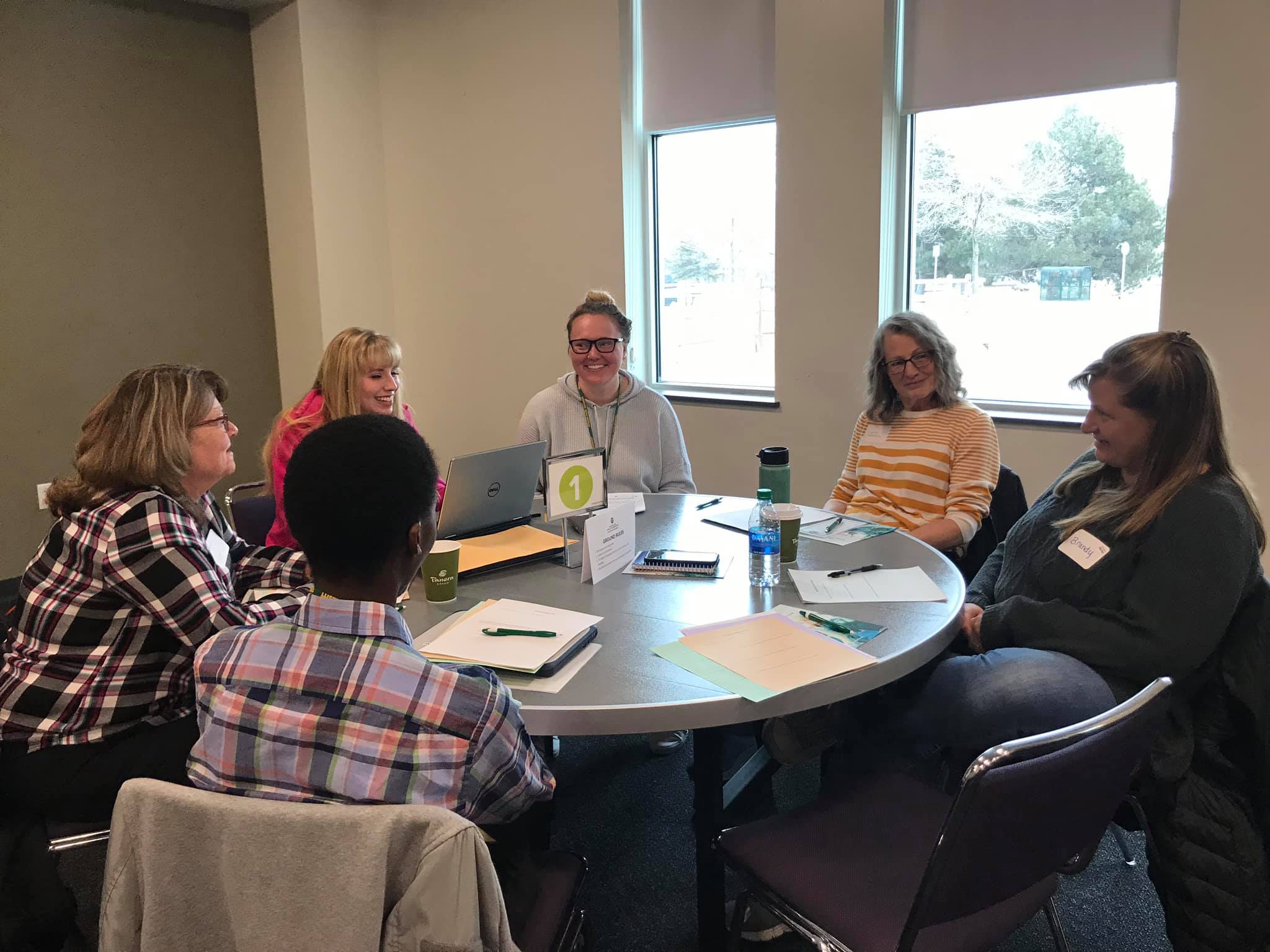About the Program
The Center for Public Deliberation has been facilitating community conversations for 20 years. Every semester, we train a new group of students in facilitation. Interested students can enroll in SPCM407: Facilitation and Collaborative Problem Solving and then have the opportunity to continue their work in the program through SPCM486: Practicum. Every practicum credit is equal to 45 hours of CPD-related work. This work includes facilitating at community events, working on a CPD team, data entry, and various other skill-building tasks. Though students are only required to complete one semester of practicum, most continue earning credits with the CPD for multiple semesters.
Learn about our deliberative projects.
Why Join?
The CPD is an incredible opportunity to earn CSU credits while simultaneously developing professional skills and working in our communities.
Develop skills employers want
Students who complete the program develop skills in many important areas including:
- Facilitation
- Collaborative problem solving
- Conflict management
- Community engagement
- Data entry and analysis
- Project management
CPD students in their second semester onward also have the opportunity to be more involved in process design, public relations, and research. According to Forbes, the ability to work in teams, make decisions and solve problems, and communicate verbally are the skills most sought out by employers. The CPD can teach you how to do just that.
Make a change in your community
Fort Collins and the surrounding Northern Colorado community is known as one of the most desirable places to live in the country, and the CPD plays a role in making our community great. We help our community talk through tough issues like affordable housing, climate change, elder abuse, and homelessness (to name a few). This empowers citizens to be more informed about political decisions that affect their lives. As a facilitator, you are on the front lines, helping citizens to become more engaged and ultimately, playing a major part in making our community a better place.
Put your education to work
Participation in the CPD is a great way to put some of the skills you learn in the classroom to actual use. Students oftentimes learn about communication, management, conflict management, relationship building, and politics in their classes. These classes, however, can seem overly theoretical. Group projects or class activities can feel more like a simulation than the real thing. Student associates get the chance to apply skills they’ve learned throughout their education in real-world scenarios. Many CPD students have gone on to work in city governments, state governments, law offices, and some have even opened their own facilitation firms!

About Our Students
While the Center for Public Deliberation operates out of the Communication Studies (SPCM) department, we welcome and encourage all majors to apply for our program regardless of your year at CSU. Many MA programs also allow this course to count towards your degree.
Students associates have majored in:
- Natural Resource Management
- Business
- English
- Interdisciplinary Liberal Arts
- Philosophy
- Human Development and Family Studies
- Psychology
- Journalism and Media Communication
- Political Science
- History
- Greenhouse Gas Management
- Fish, Wildlife, and Conservation Biology
- Communication Studies
- Biomedical Science
- Health and Exercise Science
Questions about fitting the CPD into your degree program? Send us an e-mail at cpd@colostate.edu
Linda Cates Scholarship for Democratic Deliberation
Students who are enrolled in the CPD and have at least a 3.2 GPA are eligible to apply for this scholarship opportunity. Recipients are selected each semester. Learn more.